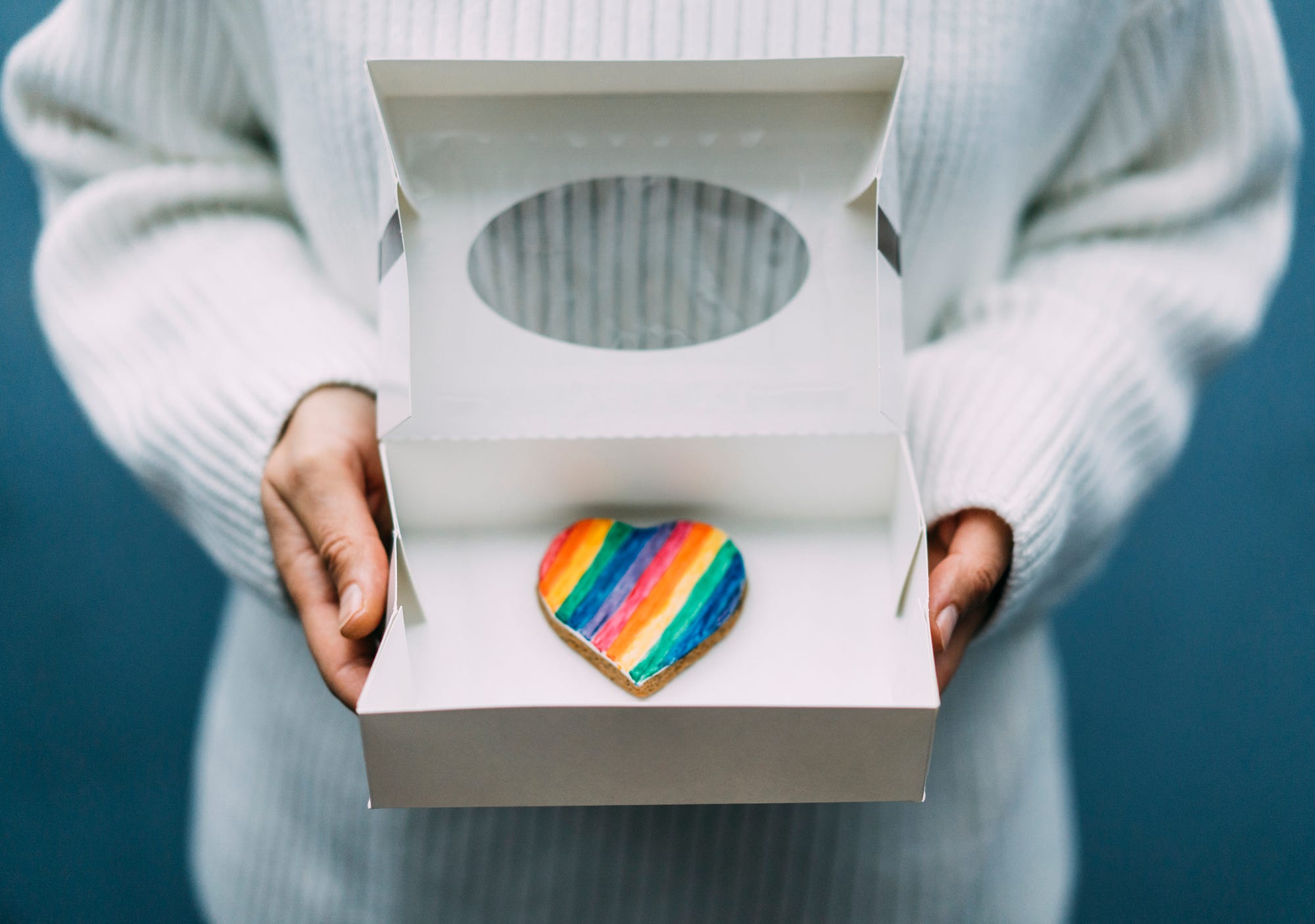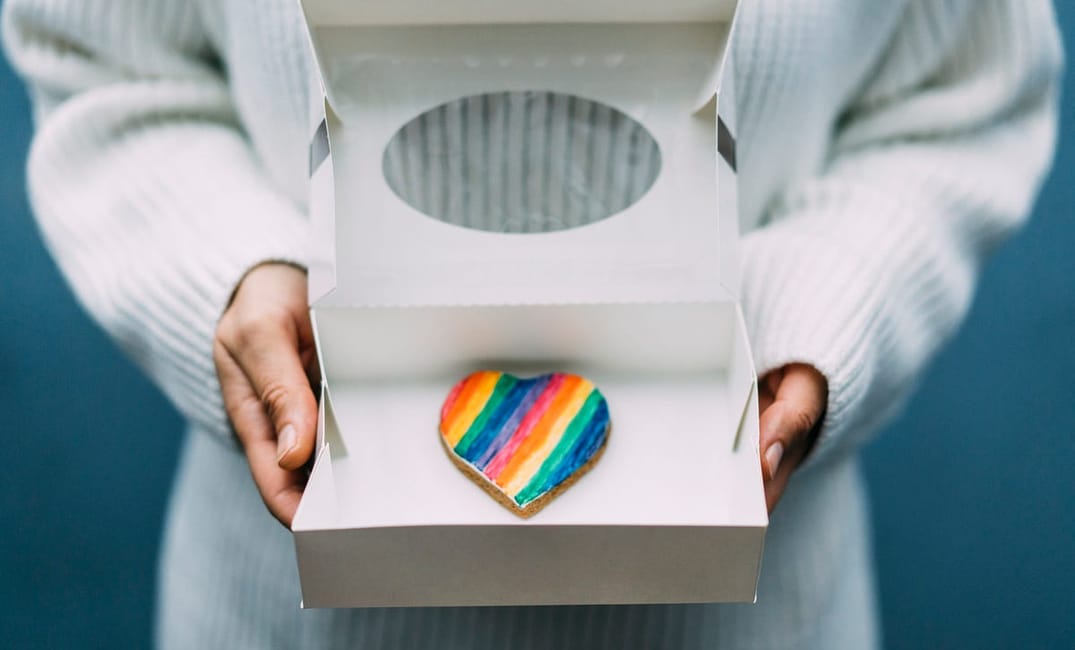
You would think coming out to a liberal family would be easy and pain-free these days. Social media is full of sickeningly sweet, performative allyship — Instagram photos of families at Pride parades, TikToks of supportive dads embracing lesbian daughters, and Facebook anecdotes about accepting grandmothers loving their gay grandsons.
You would also think this task would be even simpler in the Bay Area, the mecca of the queer community. San Francisco, Oakland, and Hayward have the highest percentage of LGBTQ-identifying population in the United States, after all. Being from San Jose, just south of San Francisco, I associated the city with “the gays” long before I ever knew about landmarks like Lombard Street or the fact that sourdough bread originated there.
Sign up for The Bold Italic newsletter to get the best content about life in the Bay Area in your inbox every week.
But when it came to my own family, even though they were politically liberal and live in a region thought of as accepting of LGBTQ people, I knew they weren’t exactly going to be thrilled when I came out as bisexual.
When I was growing up, my parents were progressive enough (or at least quiet enough) that they never influenced me to believe anything was wrong with being gay, but they also didn’t go out of their way to tell me it was okay. My mother’s only take on the matter was once mentioning she would be “sad” if any of her kids were gay, because it would mean our lives would be harder. That stuck with me.
I started to learn the limits to their tolerance when Glee came on the air. At the point in the show when Kurt Hummel started dating Blaine Anderson, my dad would storm through the living room where I was watching and grumble about the “gay singalongs.”
A few years later, my father’s younger brother came out as gay. But we still had to watch movies featuring gay characters out of the view of my father for many years.
I often called out my father for his homophobia, so much so that after I countered one particularly hateful remark, he demanded to know why I cared so much. “Are you a lesbian? Why does it matter to you?”
Not long after that conversation, while away at college last year, I came out as bisexual to my mother over the phone at age 21.
“Don’t tell your father,” she said. “He’ll have a heart attack.”
No reassuring words. Just words that told me to keep my identity a secret.
When I came home for the summer a few months later, I told my father on a walk with our Cavalier King Charles spaniel anyway.
“Why the change? You dated guys. That’s the Kristen we knew,” he said. He seemed to wish that I had left some kind of trail of breadcrumbs to lead him to discover my sexuality in a more gradual way. My mother has also made a point to say my coming out was unexpected. Both seem hung up on the fact that there were no “signs” that they can remember that would indicate I was queer before I told them.
My parents have voted blue for all the elections I can remember. They are both pro-choice and support social services in our neighborhood, like Sacred Heart Community Service. I can talk to both of them about Black Lives Matter without much disagreement. My mother understands the concept of gender dysphoria and believes transgender identities are valid.
I’ve realized my parents won’t speak up against LGBTQ oppression because of their personal connection, because they don’t want to acknowledge that they have a personal connection.
But when it comes to me, their own daughter, they cling to the idea that I could still be straight. When I express attraction to female celebrities or talk about my bisexuality, my mom is always quick to add, “But you still like boys.”
When I expressed my excitement about moving to Oregon, a state with the second-highest population of gay people in America, there was a collective groan of disgust from the entire family. My father refers to my relationship as “just having fun.” In every conversation, I can hear what he isn’t saying: “I wish you were dating men again.”
It’s been a year since I came out to them, and they’ve still made biphobic and inappropriate remarks that make me feel ostracized. They also haven’t truly acknowledged my sexuality to anyone outside of our family unit, let alone spoken proudly in support of me. My mother told me not to bother telling any of our extended family “if they wouldn’t agree.” She does her best to avoid conflict, and to her, my identity is controversial. My mom doesn’t want to deal with any unsavory comments from anyone. I realize that also means she is avoiding all instances where she may have to defend me.
I tried to convince myself for a long time that my parents love me just as much as those parents publicly voicing their support of their queer kids. But I’ve realized my parents won’t speak up against LGBTQ oppression because of their personal connection, because they don’t want to acknowledge that they have a personal connection.
My parents see only the hardship that comes with being gay in America. Maybe that’s a protective parenting instinct, but it feels as if they don’t see my bisexuality. They don’t know or understand that I cried myself to sleep many nights, sick with anxiety and worry that I was attracted to girls. They don’t know that so many of my relationships with boys were joyless, shitty substitutes for the self-esteem I didn’t have after recovering from anorexia.
LGBTQ allyship isn’t an inherent part of being a Democrat or a liberal. It is something everyone must learn and work on consciously.
They don’t know that coming out gave me the confidence to finally feel comfortable in my skin. For the first time in my life, I could look in the mirror and not hate my face. After I came out, I was able to be more authentic in my friendships and on social media. Acknowledging my bisexuality has allowed me to get a grasp on who I really am in a way I never could before.
As a member of a liberal, agnostic Bay Area family, I expected so much more. To be supported, embraced, defended, certainly — but at the very least, to be seen and acknowledged. I also realize others have faced much worse outcomes from coming out, like being forced from their home or banned from any connection, and I can only imagine the pain caused by that kind of reaction.
Being agnostic individuals born and raised in the Bay Area did not shape my parents the way I assumed it would. They never sought to challenge their own homophobic views until it hit close to home, and even then, they resisted. Voting blue is easy and fairly impersonal. Claiming you support a cause or vulnerable group is one thing, but actually being accepting and open-minded when it affects you personally requires a lot more vulnerability and effort.
LGBTQ allyship isn’t an inherent part of being a Democrat or a liberal. It is something everyone must learn and work on consciously, and I hope someday my parents will do that for me.







